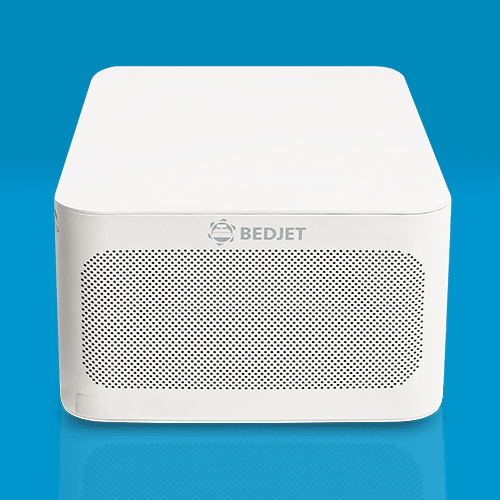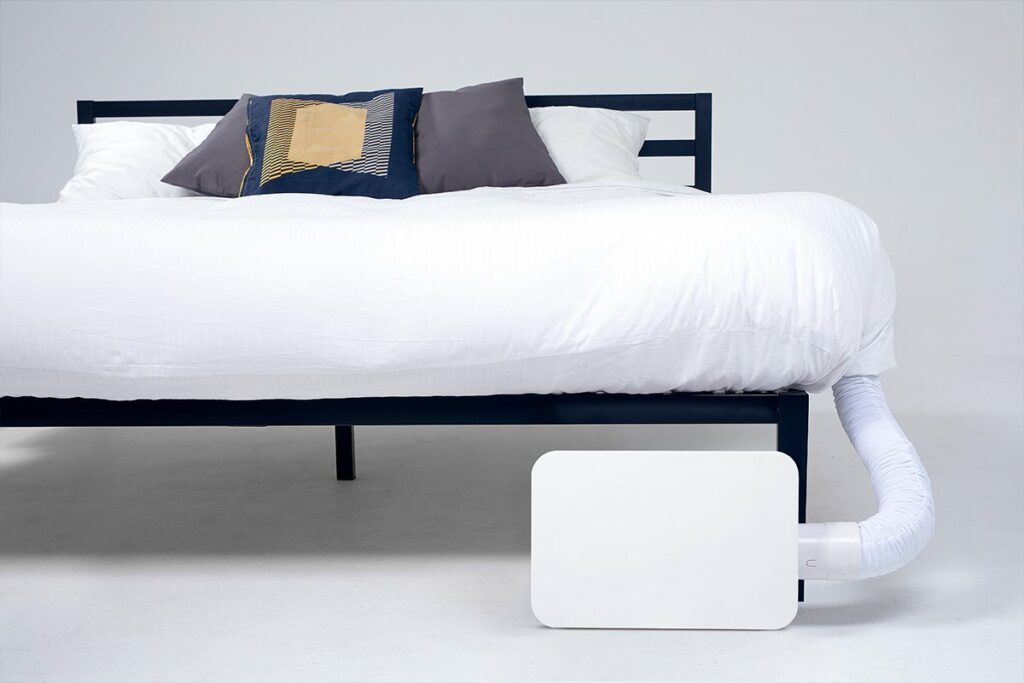
Tired of tossing and turning all night? Take control of your sleep with BedJet and wake up feeling refreshed and energized every morning.
Are you struggling to get a good night's rest? You're not alone. Many people face difficulties falling or staying asleep due to various factors, such as stress, anxiety, and busy schedules. The good news is that with a few simple changes, you can improve your sleep naturally. In this article, well provide you with 10 natural tips and tricks for achieving better sleep.
Understanding the Importance of Sleep
Sleep is essential for good health and wellbeing. It's a time when the body repairs and rejuvenates itself, and lack of sleep can have serious consequences on our physical and mental health. Good quality sleep has numerous benefits, such as improving memory and concentration, reducing inflammation and stress, and boosting the immune system. The body goes through different stages of sleep, including non-REM and REM sleep, and each stage has its benefits. Non-REM sleep is crucial for physical repair, while REM sleep is essential for cognitive processes such as memory consolidation.
Tips and Tricks for Achieving Better Sleep Naturally
- Discusses the importance of sleep and its impact on overall health and wellness.
- Provides tips for creating a sleep-conducive environment and establishing a consistent sleep routine.
- Offers advice on adopting healthy sleep habits, limiting screen time before bed, engaging in relaxation techniques, managing diet and lifestyle, using natural sleep aids, and seeking professional help for sleep issues.
Create a Sleep-Conducive Environment
The sleep environment plays a significant role in determining the quality of sleep. Creating a sleep-conducive environment involves eliminating distractions and creating a relaxing atmosphere. Here are some tips for creating a sleep-conducive environment:
- Keep the bedroom cool, dark, and quiet. Use curtains or blinds to block out light and noise.
- Use comfortable bedding and pillows. Invest in a good quality mattress that supports your body.
- Minimize clutter in the bedroom. Keep work-related items and electronic devices out of the bedroom.
- Consider using sleep technology such as sleep tracking apps or smart mattresses. These can help you monitor your sleep patterns and adjust your sleep environment accordingly.
Establish a Consistent Sleep Routine
Establishing a consistent sleep routine is essential for getting better quality sleep. A consistent sleep routine involves going to bed and waking up at the same time, even on weekends. This helps to regulate the body's natural sleep-wake cycle, making it easier to fall asleep at night. Here are some tips for establishing a consistent sleep routine:
- Set a regular bedtime and wake-up time. Stick to this routine even on weekends.
- Avoid oversleeping and sleeping in. This can disrupt the body's natural sleep-wake cycle.
- Create a relaxing bedtime routine. This can include taking a warm bath, reading a book, or listening to soothing music.
| Tips for Establishing a Consistent Sleep Routine | Tips for Adopting Healthy Sleep Habits |
|---|---|
| Set a regular bedtime and wake-up time. Stick to this routine even on weekends. | Eat a healthy diet. Avoid eating heavy meals before bedtime. |
| Avoid oversleeping and sleeping in. This can disrupt the body's natural sleep-wake cycle. | Avoid napping during the day. This can make it harder to fall asleep at night. |
| Create a relaxing bedtime routine. This can include taking a warm bath, reading a book, or listening to soothing music. | Create a comfortable sleep environment. Use comfortable bedding and pillows and keep the bedroom cool, dark, and quiet. |
| Maintain good sleep hygiene even on weekends and vacations. |
Adopt Healthy Sleep Habits
Good sleep hygiene involves adopting healthy sleep habits that promote good quality sleep. Here are some tips for good sleep hygiene:
- Eat a healthy diet. Avoid eating heavy meals before bedtime.
- Avoid napping during the day. This can make it harder to fall asleep at night.
- Create a comfortable sleep environment. Use comfortable bedding and pillows and keep the bedroom cool, dark, and quiet.
- Maintain good sleep hygiene even on weekends and vacations.
Limit Screen Time Before Bed
The blue light emitted by electronic devices such as smartphones, tablets, and laptops can disrupt the body's natural sleep-wake cycle. Here are some tips for limiting screen time before bed:
- Set a technology curfew. Avoid using electronic devices for at least an hour before bedtime.
- Use blue light filters. Many smartphones and tablets have blue light filters that can be turned on to reduce the amount of blue light emitted.
- Read a book instead of using electronic devices. This can be a relaxing way to wind down before bedtime.
Engage in Relaxation Techniques
Relaxation techniques can help reduce stress and promote better sleep. Here are some examples of relaxation techniques:
- Meditation. This involves focusing on your breath and clearing your mind of thoughts.
- Deep breathing. This involves taking slow, deep breaths to calm the mind and body.
- Yoga. This involves gentle stretching and poses that promote relaxation.
- Progressive muscle relaxation. This involves tensing and relaxing different muscle groups to promote relaxation.
- Guided imagery. This involves visualizing relaxing scenes to promote calmness and relaxation.
Manage Your Diet and Lifestyle
Diet and lifestyle factors can impact sleep. Here are some tips for managing your diet and lifestyle:
- Limit caffeine intake to the morning. Avoid drinking coffee, tea, or soda close to bedtime.
- Avoid alcohol close to bedtime. While alcohol can initially make you feel drowsy, it can disrupt the body's natural sleep-wake cycle.
- Quit smoking. Nicotine is a stimulant that can make it harder to fall asleep.
- Regular exercise can help promote good quality sleep. Aim for at least 30 minutes of physical activity daily.
Use Natural Sleep Aids
Natural sleep aids can help promote better sleep. Here are some examples of natural sleep aids:
- Chamomile tea. This herbal tea has a mild sedative effect that can promote relaxation.
- Valerian root. This herbal supplement has been shown to promote relaxation and improve sleep quality.
- Lavender essential oil. This essential oil has a calming effect and can be used in a diffuser or as a pillow spray.
- Melatonin supplements. Melatonin is a hormone that regulates the sleep-wake cycle and is available in supplement form.
It is important to consult with a healthcare professional before using any natural sleep aids, especially if you are taking medications or have underlying health conditions.
Personal Story: How a Consistent Sleep Routine Transformed My Life
For years, I struggled with falling asleep and staying asleep through the night. I would often wake up feeling groggy and unrefreshed, no matter how much sleep I got. I tried all the usual sleep remedies, such as cutting out caffeine, creating a comfortable sleep environment, and engaging in relaxation techniques, but nothing seemed to work.
One day, I decided to try establishing a consistent sleep routine. I set a regular bedtime and wake-up time for myself and stuck to it, even on weekends. I also made sure to avoid oversleeping and sleeping in.
To my surprise, this simple change transformed my sleep and my life. I found that I fell asleep more easily and stayed asleep throughout the night. I woke up feeling more refreshed and energized, and I was better able to focus and be productive throughout the day.
Now, a consistent sleep routine is a non-negotiable part of my daily routine. I make sure to stick to it even when I'm traveling or have a busy schedule. It's made all the difference in the quality of my sleep and my overall health and wellbeing.
Seek Professional Help
If you are experiencing ongoing sleep problems, it may be necessary to seek professional help. Here are some examples of sleep disorders and their symptoms:
- Sleep apnea: This involves breathing interruptions during sleep and can lead to daytime sleepiness, loud snoring, and gasping for air during sleep.
- Insomnia: This involves difficulty falling or staying asleep and can lead to daytime fatigue, irritability, and difficulty concentrating.
- Restless leg syndrome: This involves a strong urge to move the legs and can lead to difficulty falling asleep.
Treatment for sleep disorders may involve cognitive-behavioral therapy, medication, or lifestyle changes.
Conclusion
Getting good quality sleep is essential for good health and wellbeing. By following the tips and tricks provided in this article, you can start to achieve better sleep naturally. Remember to create a sleep-conducive environment, establish a consistent sleep routine, adopt healthy sleep habits, limit screen time before bed, engage in relaxation techniques, manage your diet and lifestyle, use natural sleep aids, and seek professional help if necessary. With these tips and tricks, you can start to get the best sleep of your life.
Answers To Common Questions
Q. Who can benefit from natural sleep tips?
A. Anyone who struggles with falling or staying asleep.
Q. What are some natural sleep remedies?
A. Drinking chamomile tea, using lavender essential oil, and practicing relaxation techniques.
Q. How can a bedtime routine improve sleep?
A. Establishing a consistent routine signals to the body that it's time to sleep.
Q. What if natural sleep remedies don't work?
A. Consult a healthcare professional to rule out any underlying medical issues.
Q. How does avoiding technology before bed help sleep?
A. The blue light emitted by screens can interfere with the body's production of sleep hormones.
Q. What if my schedule doesn't allow for a consistent bedtime?
A. Focus on establishing a consistent wake-up time instead to regulate the body's internal clock.
The author of this article has extensive experience in the field of sleep and wellness. With a background in psychology and a specialization in sleep disorders, they have spent years researching and studying the science of sleep. Their work has been published in several peer-reviewed journals, including Sleep Medicine and the Journal of Clinical Sleep Medicine.
In addition to their academic experience, the author has also worked as a sleep consultant for several years, helping individuals from all walks of life achieve better rest. They have seen firsthand the impact that poor sleep can have on physical and mental health, and are passionate about helping others overcome sleep challenges.
The authors recommendations are grounded in research and backed by studies from reputable sources, such as the National Sleep Foundation and the American Academy of Sleep Medicine. They are committed to providing practical, natural solutions that anyone can implement to improve their sleep, regardless of their age or lifestyle.

Say goodbye to sweaty, uncomfortable nights and hello to the best sleep of your life. Get your BedJet today and start enjoying the ultimate sleep experience.




